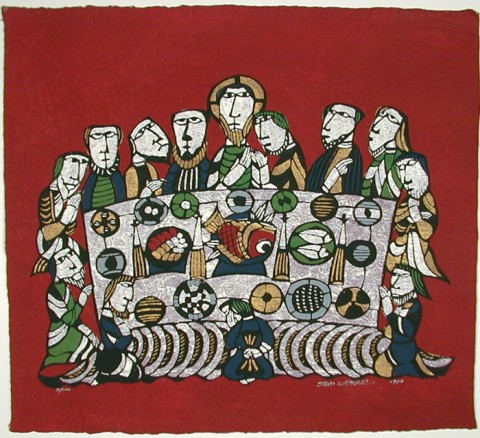I wish I had not known about the Wesley Study Bible until it was already published and on the shelves. I’m not patient when waiting on preordered items and Cokesbury is probably grateful that I won’t be calling them any more now that I have received my copy. Overall, I am very pleased with this version of the Bible and have no doubt it will be my new Bible for primary use. The Wesley Study Bible uses the NRSV and is published by Abingdon Press. If you are a member of any Methodist/Wesleyan heritage church or have an interest in Wesleyan thought, this is a great resource.
Shane Raynor, over at The Wesley Report did a brief review and I have similar thoughts in terms of the readability and feel of the book. There is also afacebook group which is discussing the merits and shortcomings of this new presentation of the NRSV.
Of course the notes are the important consideration for any study Bible, and this Bible sets itself apart in that regard, including significant details in the life and theology of John Wesley and other early Methodists. The sources for the notes are John Wesley’s Notes on the Bible and the Bicentennial edition of The Works of John Wesley.
An example: on page 1199, with the story of the sheep and the goats, we have an inset on Wesley’s friend William Morgan and his invitation to visit prisoners. Visiting Prisoners is one of the “Wesleyan Core Terms” which also include Physician of Souls, Lay Leadership, Tradition, Liberty, Mind of Christ, and I’d guess about 100 other topics. Thankfully, all these terms, as well as the “Life Application Topics” and the maps are indexed, but as one of the facebook users (Ron N.) points out, the index might be more helpful with page numbers. Instead, if you’re looking up a life application topic or Wesley Core Term, the index only provides you with the book that it can be found in. Granted, they also list it by the order that it appears, which helps, but it’s a fairly significant inconvenience, particularly for a group study setting. You can take a look at this indexing system yourself by downloading the free sample.
I am also surprised that there is no concordance, something I think is an important part of any Bible calling itself a study Bible. This is, however, a Bible specifically designed as a resource for better understanding of the Wesleyan perspective on Scripture, and it fulfills that task. I’m looking forward to using it, as well as giving it to some of my Wesleyan brothers and sisters.



